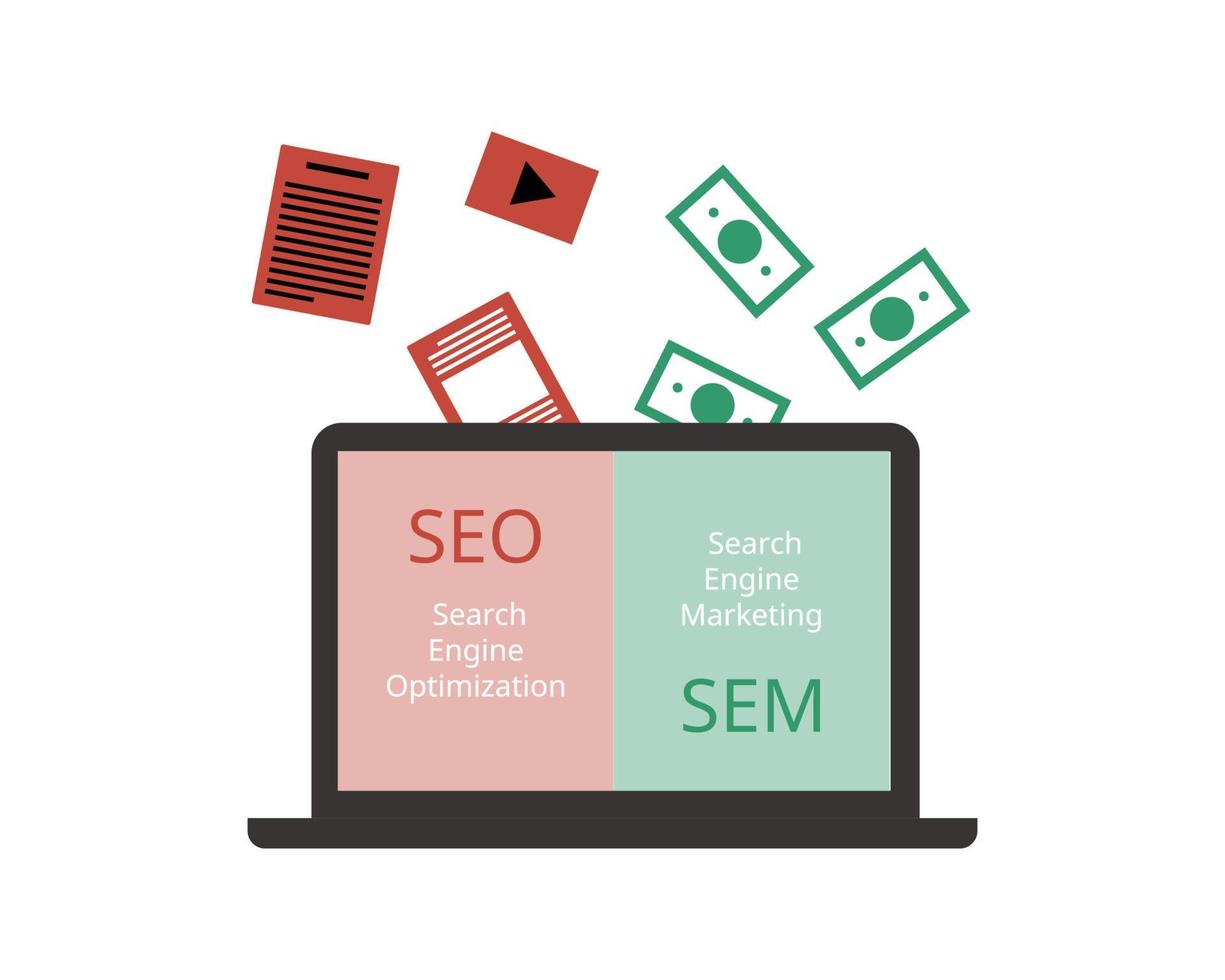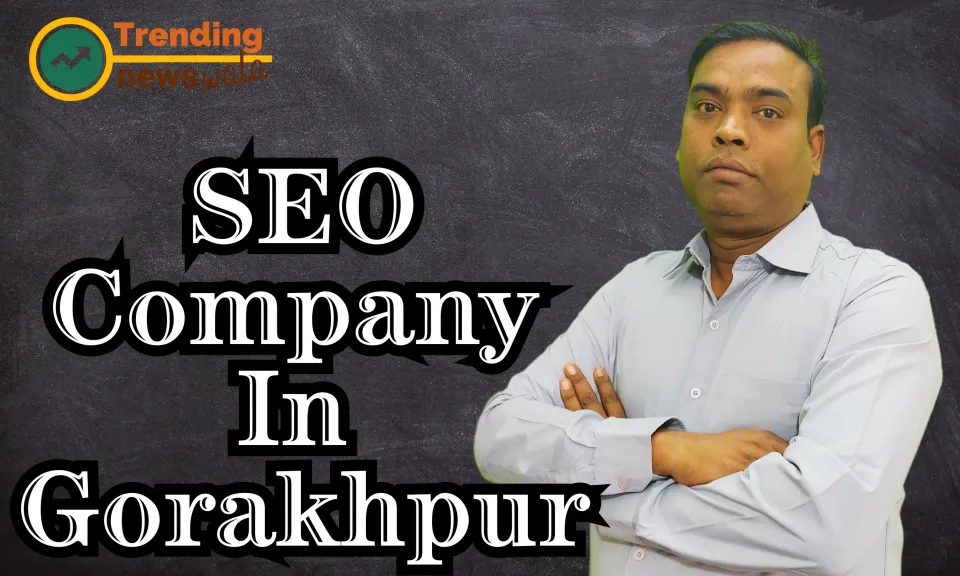SEO vs. SEM: Differences and similarities between the two The Building Blocks Of Digital Marketing Strategy

Digital marketing has become a critical aspect of modern business, and with the increasing number of online consumers, it has become more crucial than ever to develop a robust marketing strategy. Two of the most important building blocks of a digital marketing strategy are Search Engine Optimization (SEO) and Search Engine Marketing (SEM). While both of these concepts are related to improving the visibility and ranking of your website on search engines, they are fundamentally different in their approach and execution. In this article, we will take a closer look at the differences and similarities between SEO and SEM and how they can complement each other to form a comprehensive digital marketing strategy.
Search Engine Optimization (SEO)
SEO is a long-term strategy that focuses on optimizing your website and its content to rank higher on search engines like Google, Bing, and Yahoo. The goal of SEO is to increase organic (or non-paid) traffic to your website. It's all about making your website as search engine friendly as possible, so that the search engines can easily crawl and understand your website's content. The main objective of SEO is to improve the visibility of your website on the search engine results pages (SERPs) and make it easier for users to find you when they search for keywords related to your products or services.
The process of SEO involves a variety of techniques, including keyword research, on-page optimization, link building, and content creation. Keyword research involves identifying the keywords and phrases that users are searching for in relation to your products or services. Once you have identified these keywords, you can then optimize your website's content and meta tags to include these keywords, which will help the search engines understand what your website is about. Link building involves acquiring backlinks from other websites that point to your website, which helps to improve your website's authority and credibility. Content creation is about creating high-quality and engaging content that provides value to your target audience and helps to establish you as an expert in your industry.
Search Engine Marketing (SEM)
While SEO focuses on improving your website's organic ranking, SEM focuses on paid advertising on search engines. The goal of SEM is to increase your website's visibility by placing ads in the sponsored listings on the search engine results pages. This is done through the use of Pay-Per-Click (PPC) advertising, where you pay for each click on your ad. The main objective of SEM is to drive more traffic to your website and increase your website's visibility in the short term.
SEM is a fast and effective way to drive traffic to your website and can provide immediate results. However, it's important to note that SEM is a paid advertising method and requires a budget to be effective. In addition, the results of SEM are short-lived and can quickly disappear when your ad campaign ends.
Differences and Similarities
While SEO and SEM are different in their approach and execution, they do have some similarities. Both SEO and SEM are focused on improving the visibility of your website on search engines and driving more traffic to your website. Additionally, both require a strategic and tactical approach to be effective.
One of the key differences between SEO and SEM is the cost involved. SEO is a long-term strategy that requires time and effort, but is generally a cost-effective method of driving traffic to your website. SEM, on the other hand, is a paid advertising method that requires a budget to be effective.
Another key difference between SEO and SEM is the duration of the results. SEO is a long-term strategy that takes time to produce results, but the results are long-lasting and sustainable. SEM, on the other hand, provides immediate results, but the results are short-lived and disappear when your ad campaign ends. Additionally, SEM results can be heavily influenced by the budget you have allocated for the campaign.
In terms of targeting, SEO focuses on targeting specific keywords and phrases related to your products or services. This involves a thorough understanding of the keywords your target audience is searching for and optimizing your website accordingly. On the other hand, SEM allows for more targeted and specific audience targeting, as you can target specific demographics, locations, and even devices.
Finally, the measurement of success is different between SEO and SEM. The success of an SEO campaign is measured by the improvement in organic rankings, increase in organic traffic, and improvement in conversions. The success of an SEM campaign, on the other hand, is measured by the number of clicks on your ads, the cost per click, and the overall return on investment.
Building a Comprehensive Digital Marketing Strategy
Both SEO and SEM have their own unique strengths and weaknesses, and a comprehensive digital marketing strategy should take advantage of both. While SEO takes time to produce results, it is a cost-effective method of driving traffic to your website in the long-term. On the other hand, SEM is a quick and effective way to drive traffic to your website in the short-term, but requires a budget to be effective.
A comprehensive digital marketing strategy should start with a thorough understanding of your target audience and their search behavior. This will help you identify the keywords and phrases that are relevant to your products or services, and inform your SEO and SEM strategies.
Your SEO strategy should focus on optimizing your website for the relevant keywords and phrases, and improving the overall user experience of your website. Your SEM strategy should focus on running targeted and effective PPC campaigns that drive traffic to your website and increase your visibility on search engines.
Finally, it's important to regularly track and measure the success of your SEO and SEM campaigns. This will help you identify areas for improvement and optimize your strategy for maximum results.
Conclusion
SEO and SEM are two important building blocks of a comprehensive digital marketing strategy. While they are different in their approach and execution, they both have their own unique strengths and weaknesses. A comprehensive digital marketing strategy should take advantage of both SEO and SEM, and focus on improving the visibility of your website on search engines and driving more traffic to your website. By understanding the differences and similarities between SEO and SEM, you can create a strategy that leverages the strengths of both and produces the best results for your business.





